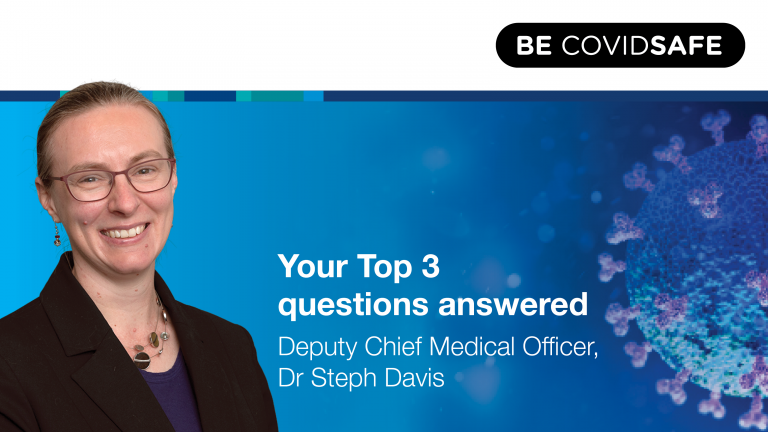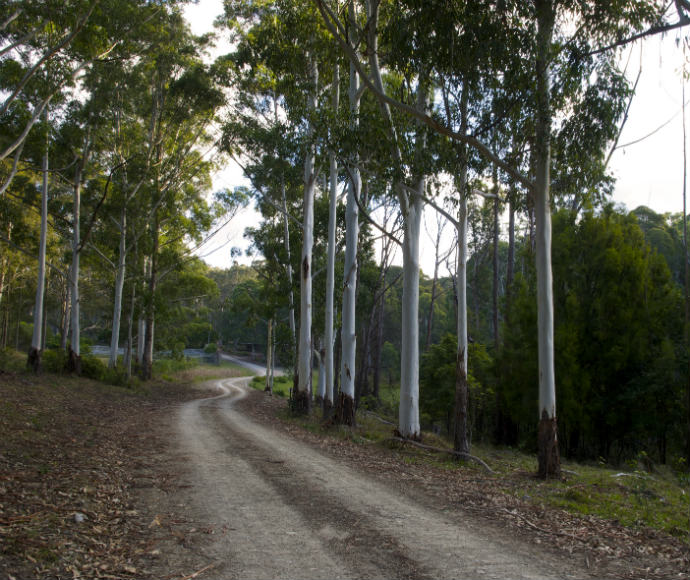
Morning, everyone. My name is Dr Steph Davis and I am a Deputy Chief Medical Officer at the Australian Government Department of Health. Before I go any further, I would like to acknowledge the Traditional Custodians of the land on which I am meeting today, and here in Canberra, that is the Ngunnawal people. I would like to pay my respects to Elders past, present and emerging and I would like to extend those respects to the Traditional Custodians of the lands on which others are watching this from and also to any Aboriginal and Torres Strait Islander people who are watching this video today. My shout-out today is to all the residential aged care facility workers and all the other aged care workers around Australia. You are the people who are looking after our Elders, who in turn looked after us, and you are doing such an amazing job. Speaking from experience here, as my grandmother who is in her 90s, is in an excellent residential aged care facility, and I know she gets so much love and care from the people who care for her. I want to thank you all for getting the vaccine and for all the ongoing work you are doing in protecting the elderly. Thank you so much.
The first question that I am going to answer today is, what questions should I ask my GP if I am over 60 but a bit nervous about getting the COVID-19 vaccine?
I feel very well placed to answer this question as I am a GP and have lots of patients over the age of 60. I think the thing is that really you should feel free to ask any questions that you want of your GP. Certainly, some questions I am getting from people who are over 60 are, is the vaccine safe? Is it right for me? A lot of people have concerns about how it might interact with any underlying medical conditions they’ve got or any other medications that they are taking. I can reassure you that for most of those, the vaccine is completely safe. I can also reassure you that for the vast majority of people, getting the vaccine is much, much, much safer than potentially getting COVID. But again, you should ask the questions that you feel that you need to ask so that you can make your own decision. You should never feel embarrassed about asking any kind of questions of your GP at all. So make sure that if you do have a bit of nervousness, that you make that appointment and you go and have a chat about any of the particular conditions or any particular worries you’ve got so that then you can make a decision and feel comfortable and confident in that decision.
My second question today is, what steps should I take if I am exposed to COVID-19?
Again, I feel very well qualified to answer this question because I recently came out of quarantine having been exposed to someone with COVID-19. If you have been notified by a public health department that you have been exposed to someone with COVID-19, you are probably going to need to quarantine. Most of the time that quarantine is 14 days from the time when you had the last exposure to that person. If you quarantine, you generally cannot leave your house unless it is an emergency, so you need to seek medical care, or you are escaping from domestic violence. Generally, you cannot have people over to your house unless they are people who come to provide a caring role usually and sometimes your family has to quarantine with you. You probably also need to have some tests done during that time. The Public Health Unit who notifies you that you are a contact, will be able to give you all of this information and they will also be able to provide you with support to help you quarantine so if you need food or other essentials, if you need medical care. If you have any concerns or questions, if you think you have been exposed and you haven’t been contacted by the Public Health Unit, then make sure you contact the COVID-19 helpline in your state or territory.
The third question I have been asked to answer today, and this is a bit of a technical one, is what are the differences between the Moderna and the Pfizer COVID-19 vaccines?
As I said, it is a bit of a technical one so you might have to bear with me for a bit of this explanation. I am going to start by talking about the similarities between the vaccines, because they are really very similar. Both of these vaccines are mRNA vaccines. What does that mean? mRNA, or messenger RNA, is a bit of genetic code. So in the vaccine, it is wrapped in an oily coat, gets injected in your arm and then gets taken up by the cells, and that genetic code tells the cell machinery to do something and specifically what it tells the cell machinery to do is to produce a spike protein. The spike protein is that little spiky thing that you can see in a picture of the COVID-19 virus that you see on the outside. That spike is how the COVID-19 virus latches onto your cells and gets inside them. Both the Pfizer and the Moderna vaccines, the mRNA vaccines as I said, they tell your cells to make that spike protein and that means that if you are exposed to the COVID-19 virus in the future, that your cells are going to be able to recognise that and fight it off. Just a quick note on the safety of this because it sounds a little bit freaky that you are getting your cells to, injecting them with a bit of mRNA and getting them to do something. It is important to remember that they are replicating what the code of the virus does itself. So the COVID virus, if it gets inside your body if you are infected, that actually contains a bit of genetic code that tells your cells to make lots and lots more copies of the COVID virus, including the spike protein, and that virus has really bad effects on you: on your lungs, on your blood cells, on all other kinds of parts of your body. Whereas the mRNA in the vaccine is telling your cells to make that very specific part, that spike protein. It is also important to remember that after the genetic material has done its job and told your cells what to do, that it gets broken down completely, it does not hang around after that. In terms of differences between the two, the Pfizer and Moderna vaccine, the oily coat they use is a bit different, the actual sequence they use use of mRNA is bit different, very complex but a little bit different, and the Moderna vaccine has a bit more mRNA in it so a little bit of a bigger dose. The administration schedule is also a bit different. The Pfizer vaccine, the second dose comes three weeks at least after the first, whereas in the Moderna vaccine, it should be at least four weeks after the first. But again, coming back to similarities, both vaccines are very effective and they are both very safe.
So, hopefully that has answered some of your questions for today. Thank you, as always, so much for joining in, and particularly, I want to thank my interpreter, Linda, today. Stay safe, everyone.
Top 3 questions
- What questions should I ask my GP if I am over 60 but nervous about getting the COVID-19 vaccine?
- What steps should I take if I’m exposed to COVID-19?
- What are the differences between the Moderna and Pfizer Vaccines?









